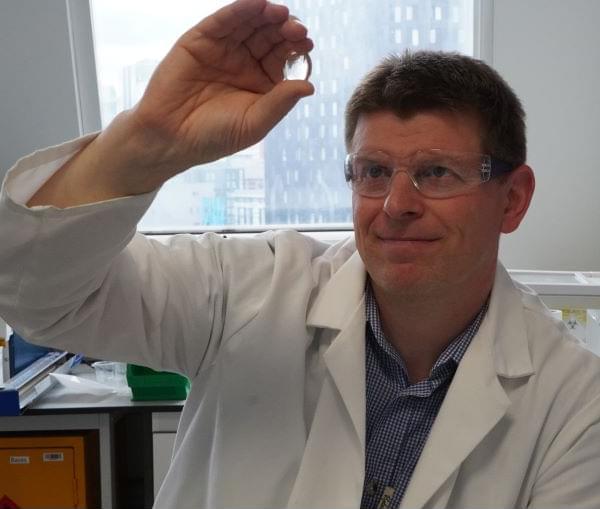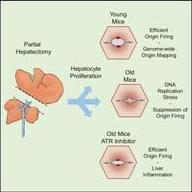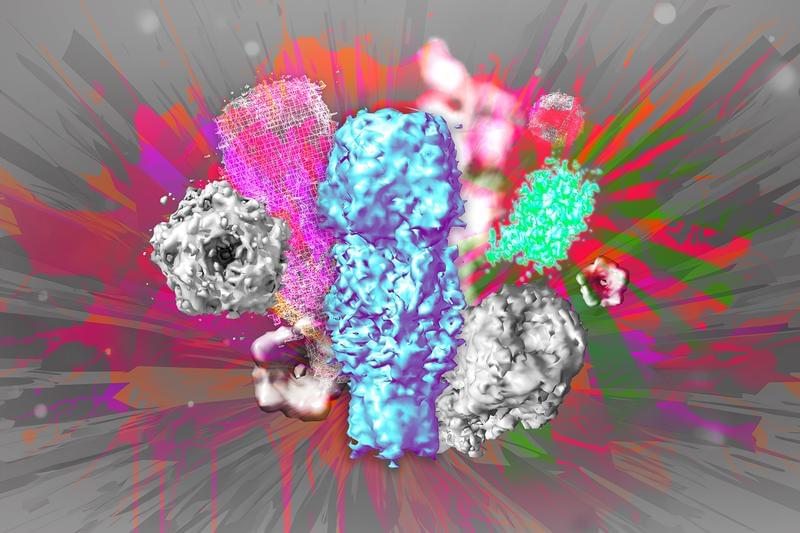This is a ~40 minute talk on the future of medicine from my perspective given remotely to students at the University of Bologna, Italy.
Category: biotech/medical – Page 731

Aston University develops novel bone cancer therapy which has 99% success rate
Bioactive glasses, a filling material which can bond to tissue and improve the strength of bones and teeth, has been combined with gallium to create a potential treatment for bone cancer.
Tests in labs have found that bioactive glasses doped with the metal have a 99 percent success rate of eliminating cancerous cells and can even regenerate diseased bones.
The research was conducted by a team of Aston University scientists led by Professor Richard Martin who is based in its College of Engineering and Physical Sciences.


How Brain Cells Identify Smells and Related Images
Summary: A recent study reveals that specific brain cells respond not only to smells but also to images and written words related to those scents, providing deeper insight into human odor perception. Researchers found that neurons in the olfactory cortex and other brain regions, like the hippocampus and amygdala, distinguish between different smells and associate them with visual cues.
This research, using data from epilepsy patients, bridges a gap between animal and human studies on olfactory processing. Remarkably, individual neurons responded to scent, image, and word, suggesting that smell processing integrates visual and semantic information early on. These findings could lead to future innovations in “olfactory aids.” The study emphasizes the interconnected nature of smell and visual memory in the human brain.

Electronic Tongue Uses AI to Detect Differences in Liquids
Summary: Researchers have developed an AI-powered “electronic tongue” capable of distinguishing subtle differences in liquids, such as milk freshness, soda types, and coffee blends. By analyzing sensor data through a neural network, the device achieved over 95% accuracy in identifying liquid quality, authenticity, and potential safety issues. Interestingly, when the AI was allowed to select its own analysis parameters, it outperformed human-defined settings, showing how it holistically assessed subtle data.
This technology, which uses graphene-based sensors, could revolutionize food safety assessments and potentially extend to medical diagnostics. The device’s AI insights also provide a unique view into the neural network’s decision-making process. This innovation promises practical applications across industries where quality and safety are paramount.

Parkinson’s Discovery Suggests We Already Have an FDA-Approved Treatment
Researchers have discovered how a cell surface protein called Aplp1 can play a role in spreading material responsible for Parkinson’s disease from cell-to-cell in the brain.
Promisingly, an FDA-approved cancer drug that targets another protein called Lag3 – which interacts with Aplp1 – blocks the spread in mice, suggesting a potential therapy may already exist.
In a recent paper, an international team of scientists describes how the two proteins work together to help harmful alpha-synuclein protein clumps get into brain cells.

Polaris Dawn brings new areas of Research, Medical Care
The launch of Polaris Dawn from Kennedy Space Center includes the first civilian commercial spacewalk and other factors that will be firsts for space medicine research. And that’s why Emmanuel Urquieta, an internationally recognized space medicine expert who recently joined UCF’s College of Medicine, is especially excited about this latest mission.
The spacecraft is flying up to 870 miles above Earth—the highest orbit flown in the last half century. And at that altitude, the astronauts will be exposed to higher radiation than most astronauts who stay in low Earth orbit, such as those onboard the International Space Station.
After achieving the high orbit, Polaris Dawn will come down to a lower altitude for the spacewalk. Traditionally, when astronauts exit the spacecraft, there is an airlock that allows the interior of the vehicle to stay pressurized. But during this week’s walk, the entire vehicle will be depressurized so all four astronauts will be exposed to the vacuum of space and must rely on their spacesuits for life support.

ONE microscopy: from molecule to 3D structure with conventional microscopy
Researchers at the University Medical Center Göttingen (UMG), Germany, have developed a new method that makes it possible for the first time to image the three-dimensional shape of proteins with a conventional microscope. Combined with artificial intelligence, One-step Nanoscale Expansion (ONE) microscopy enables the detection of structural changes in damaged or toxic proteins in human samples. Diseases such as Parkinson’s disease, which are based on protein misfolding, could thus be detected and treated at an early stage.
ONE microscopy was named one of the “seven technologies to watch in 2024” by the journal Nature and was recently published in the renowned journal Nature Biotechnology (“One-step nanoscale expansion microscopy reveals individual protein shapes”).
Artistic impression of the first protein structure of the GABAA receptor solved by ONE microscopy. (Image: Shaib/Rizzoli, umg/mbexc)
Dr. Jay Hooper — Chief, Molecular Virology, USAMRIID — Countermeasures For Exotic Viral Diseases
Medical Countermeasures For Exotic Viral Diseases — Dr. Jay Hooper, Ph.D. — Chief, Molecular Virology Branch, U.S. Army Medical Research Institute of Infectious Diseases — USAMRIID.
Dr. Jay Hooper, Ph.D is Chief, Molecular Virology Branch, at the U.S. Army Medical Research Institute of Infectious Diseases (USAMRIID — https://usamriid.health.mil/) where his research is aimed at the discovery and development of medical countermeasures targeting exotic viral diseases of military importance including hemorrhagic fever caused by hantaviruses, arenaviruses, filoviruses (e.g., Ebola virus), and diseases caused by poxviruses (e.g., smallpox and monkeypox).
Dr. Hooper’s discoveries include one of the world’s most potent monoclonal antibodies targeting smallpox (7D11), and the first practical lethal disease animal model for a hantavirus (Andes virus in Syrian hamsters).
Dr. Hooper is an expert in DNA vaccine technology and the use of this technology to develop both active vaccines and passive (antibody-based) medical countermeasures, and is the lead scientist in an effort that has resulted in multiple hantavirus DNA vaccines moving into Phase 1 and 2 clinical trials.
To expedite medical countermeasure research, Dr. Hooper’s group established a pseudovirion neutralization assay capability which has been used to support the rapid development of candidate antibody-based products and vaccines, including candidate Ebola virus vaccines.

Uncovering Genetic Links to Psychiatric Disorders in the Brain
Summary: Scientists have identified how genetic variants influence the risk of neurological and psychiatric disorders, including schizophrenia and autism. Using live neural cells and DNA sequencing, researchers discovered thousands of “non-coding” genetic variants with context-dependent functions, activated during brain development.
These variants act like switches, turning genes on or off depending on cellular pathways. This research offers new insights into the biological mechanisms behind psychiatric disorders and could lead to personalized treatments based on genetic profiles.